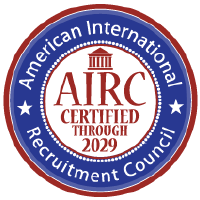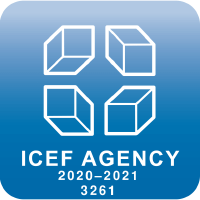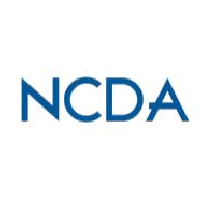
微信客服
wholerenguru3 (厚仁学术哥)
A GENERATION ON “STERIODS”
The Chinese Educational Trajectory: a generation dependent on short term performance enhancement
By Andrew H. Chen
Chief Learning Officer of WholeRen Group
May 2017
Yixuan Wan is a third grader in Beijing’s public school system. Yet the majority of his weeknights, weekends and holidays are spent attending private classes–all enhancing the same public school curriculum.
Like Yixuan, most Chinese students rarely escape from the strict regimen of these after school classes. In fact, a family living in the large Chinese cities (e.g. Beijing or Shanghai) typically spends about $3,000 per year on each of their children aged 3-18 years old. In smaller cities, families generally spend over $1,000 per child. Thus, when considering China’s population of 1.4 billion, it becomes clear that total spending on private classes and tutoring is quite high–with some estimates placing the private K-12 education industry’s value at $120 billion.
What exactly do the students study in these private courses? For the most part, it is the same curriculum studied during school hours. Yet students double down on Math, Chinese and English classes after school hours just to stay ahead of their peers. In doing so, they are convinced that they will improve their future educational prospects. College entrance is dependent upon getting into high school. Unlike the United States, high school entrance is not a guarantee. In fact, 50-60% of students in cities like Nanjing and Chengdu are not able to get into high school at all.
Chinese students options are limited in terms of choosing a pathway to higher education. Beginning at age three, students are pressured into getting into a good daycare which will set them up on the path to securing places at the best elementary, middle and high schools, then colleges. There are simply not enough seats at Chinese high schools and colleges, or not enough seats at the “good” schools. So, if a student cannot get into public high school, she will generally choose a technical school. Since there is not much they can do about opening up available seats at the best educational institutions, families focus upon improving their children’s performance on entrance exams–mainly via after school private tutoring.
On the other hand, public schools are barred from offering their own academic enrichment in the form of after school classes. The government mandates that all schools release their students by 3:30 pm. Furthermore, there are limits placed upon the difficulty levels of college and high school entrance exams. Despite these measures aimed at protecting students, schools and teachers are constantly evaluated by how well their students do in these same standardized tests. These institutions’ reputations are built upon their ability to boast about their high quality instructors and their student body’s test scores.
Due to these conflicting pressures, private K-12 education companies are extremely popular because they promote one thing above all–high test scores that can beat out the competition. Most often, teachers push their students to attend these private classes. Combined with pressure from teachers and the companies’ aggressive marketing campaigns, parents eagerly enroll their children into the classes that suddenly become indispensable to their futures.
Student performance is also matter of family honor in China. There is no choice but to get on board with private classes and working towards getting the highest test scores possible. In fact, if a student starts to slide or fall below the average at school, he will be singled out. Since a bad student is seen as a direct reflection of poor teaching, teachers intervene quickly, calling in families to address the student’s poor school performance. Once the family gets involved, a student must improve his results or alternatively, face the burden of having dishonored his family with poor performance and disobedience.
When faced between success and dishonor, students and families quickly turn to the promising “steroids approach” of private education companies, hoping to boost scores as soon as possible. Such short-term performance enhancement is the exact business of the K-12 after school education industry. Driven by competitive and commercial interests, these companies have established sophisticated techniques to improve test results. For example, a student is instructed to follow a curriculum one month ahead of her regular public school schedule–which helps her gain a competitive advantage, thereby inflating test scores. Many of these third party service providers are doing increasingly well in international markets, with one such provider TAL Education valued at $9.3 billion on the New York Stock Exchange.
So, why does this all matter to US educators? It comes down to assessing reality and reevaluating opportunities. As F-1 Chinese students have steadily been the largest US international student group for the past six years, it becomes imperative that US colleges and high schools understand their incoming students’ past and present motivations. Furthermore, understanding this reality can open up new opportunities for US community colleges and other university pathway programs. Not requiring SAT or high TOEFL scores, community colleges can serve as great starting points for many Chinese students who seek an alternate pathway towards four-year universities.
Ultimately, the question becomes whether or not Chinese families will have an open-minded attitude towards unranked educational institutions like community colleges. With a deeper understanding of these students’ life situations, perhaps US educators can help facilitate a new shift away from short term, steroid-like dependency towards a more sustainable approach to higher education.
Copyrights © 2017 WholeRen Group, LLC. All Rights Reserved
Andrew Chen
Chief Learning Officer of WholeRen Group
andrew.chen@wholeren.com
Andrew is an educator and advisor on International education. He is the co-founder and CEO of WholeRen Group. He has been interviewed and quoted by New York Times, VOA, The Wall Street Journal, CNN, Business Insider, The Washington Post, Newsweek, The Atlantic, The Pie News, Chinadaily, CCTV and other mainstream media in both China and US.
WholeRen Group
WholeRen’s maxim, “Bringing Two Great Nations Together, One Student at a Time”, captures the essence of its mission to serve the educational needs and aspirations of families and educators in the USA and China while enhancing those experiences and involving highly reputed educational organizations and individuals. This mission is predicated on meeting the needs of the individual student by utilizing the best aspects of Eastern and Western educational precepts, and making the success of the learner the highest priority.
Email: info@wholeren.com
Telephone:
For more information, visit www.wholeren.com
美国招生协会
AIRC权威认证
80位
美国双语导师
10年+
名校申请经验
8600+
名校名企录取

微信客服
wholerenguru3 (厚仁学术哥)





















